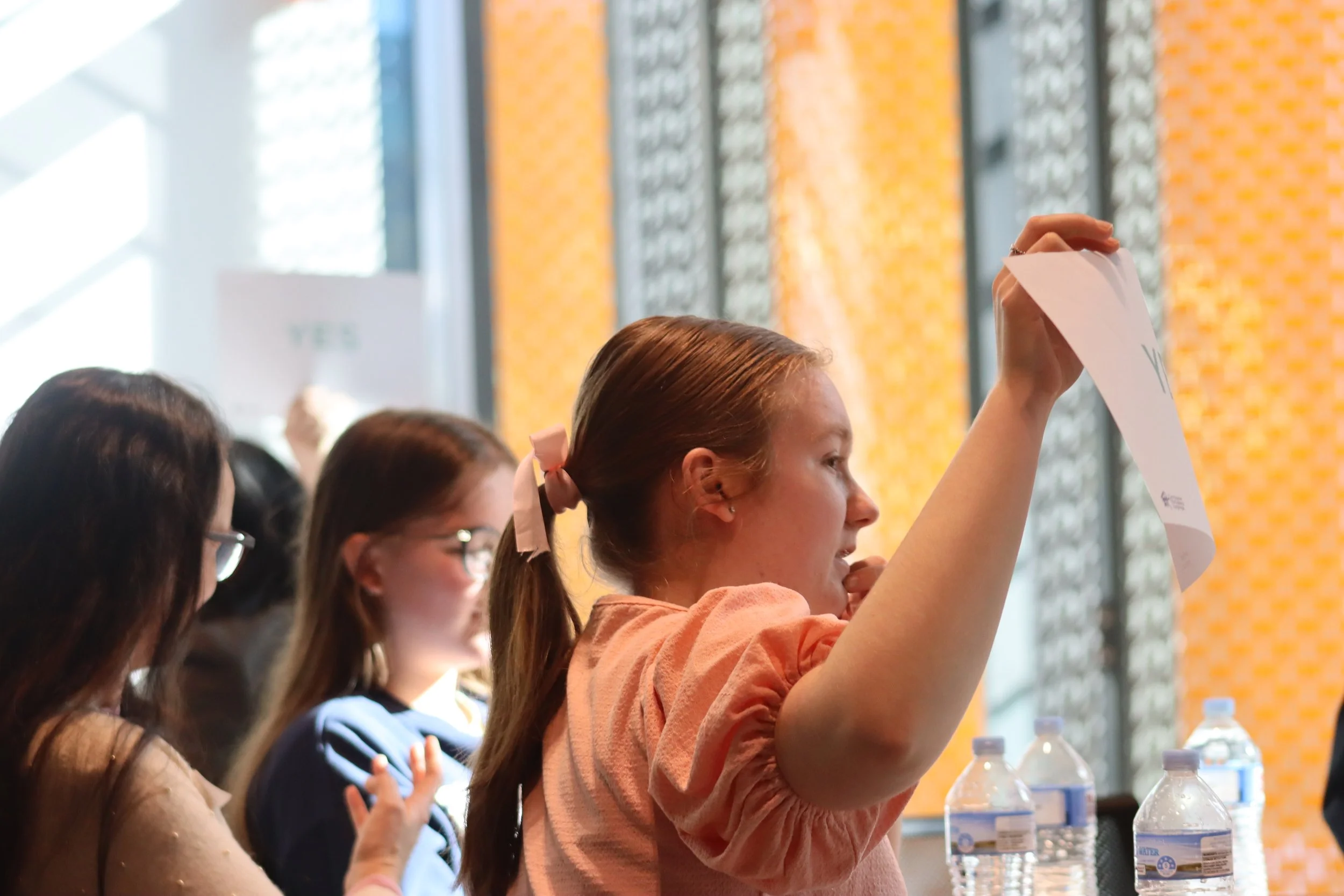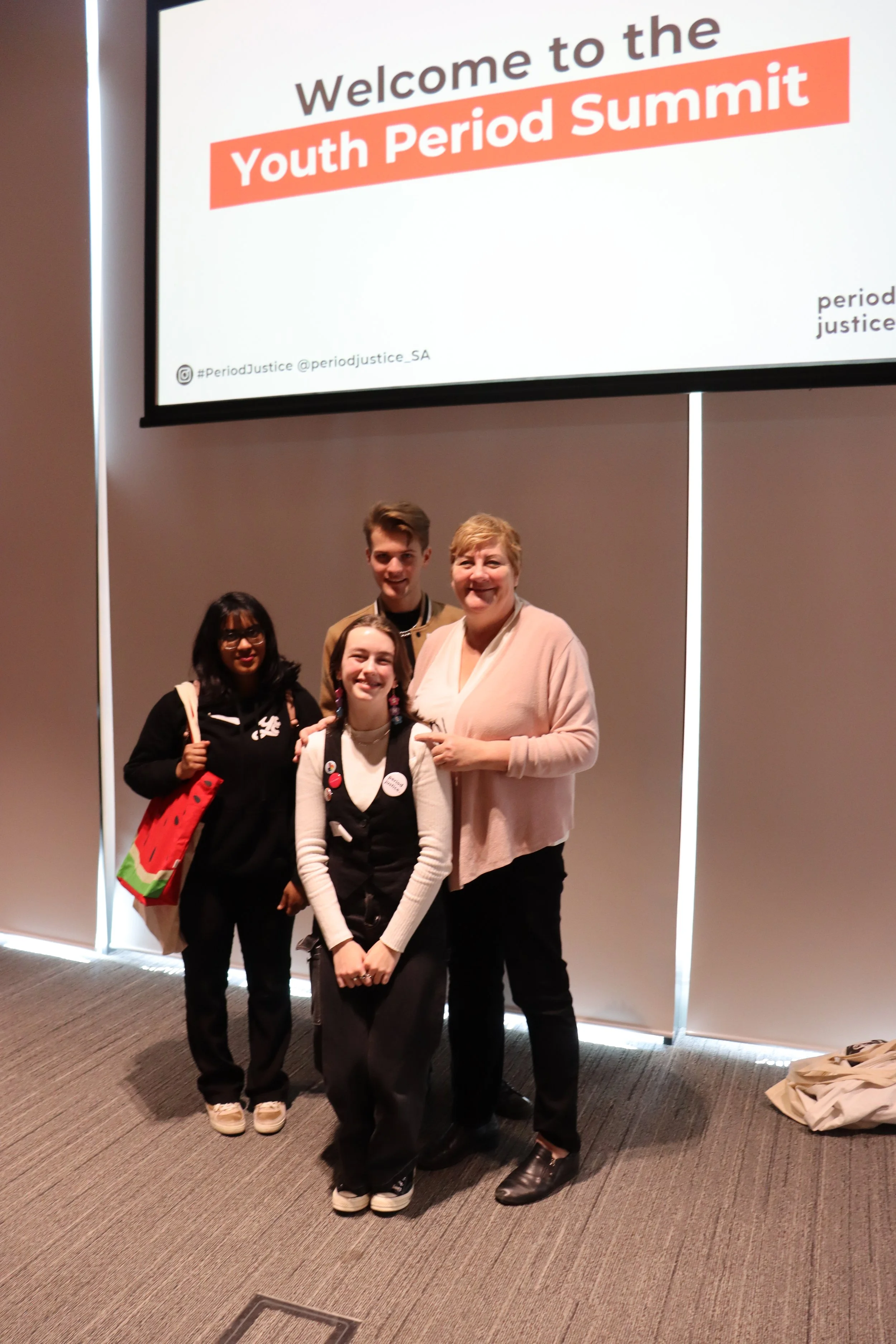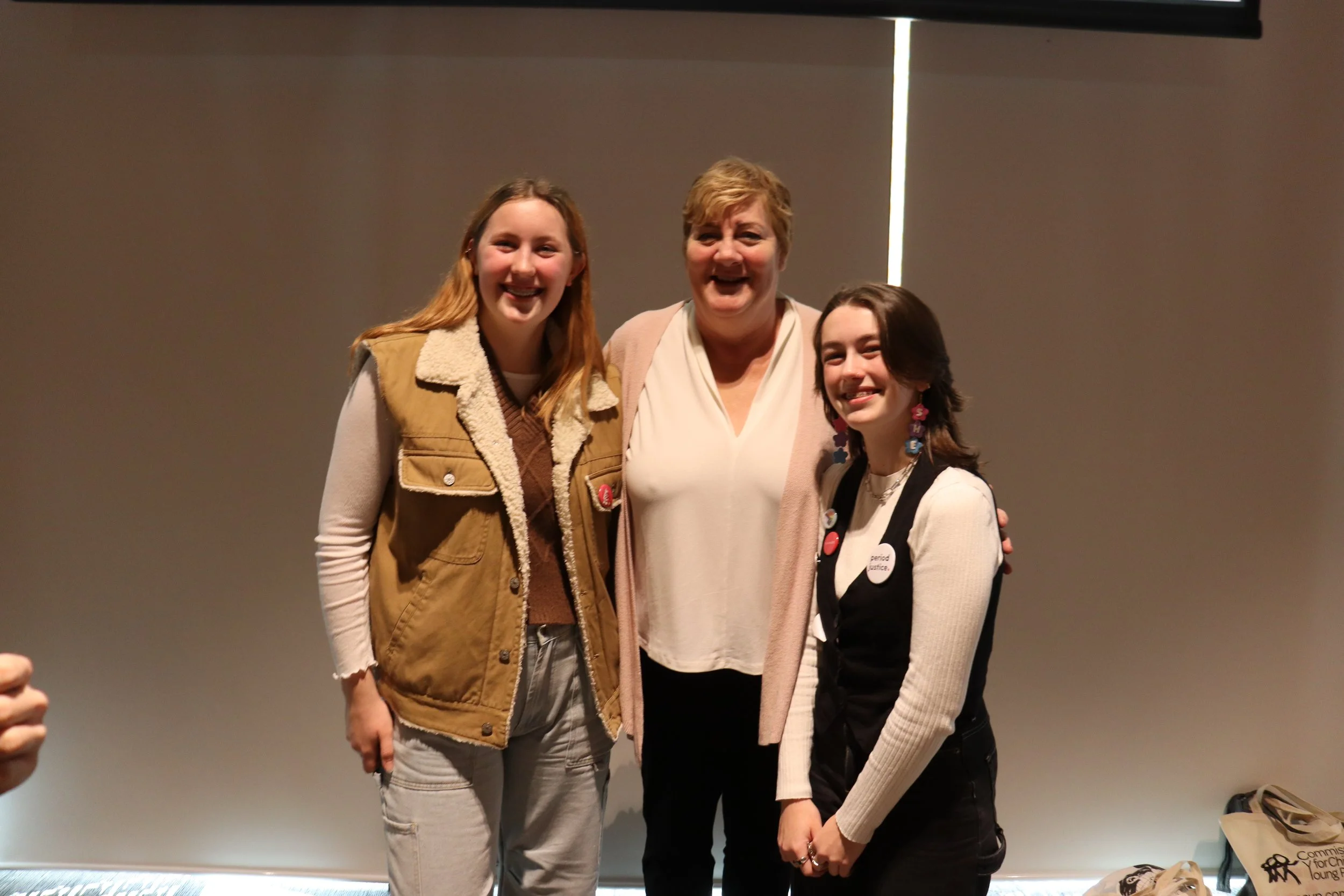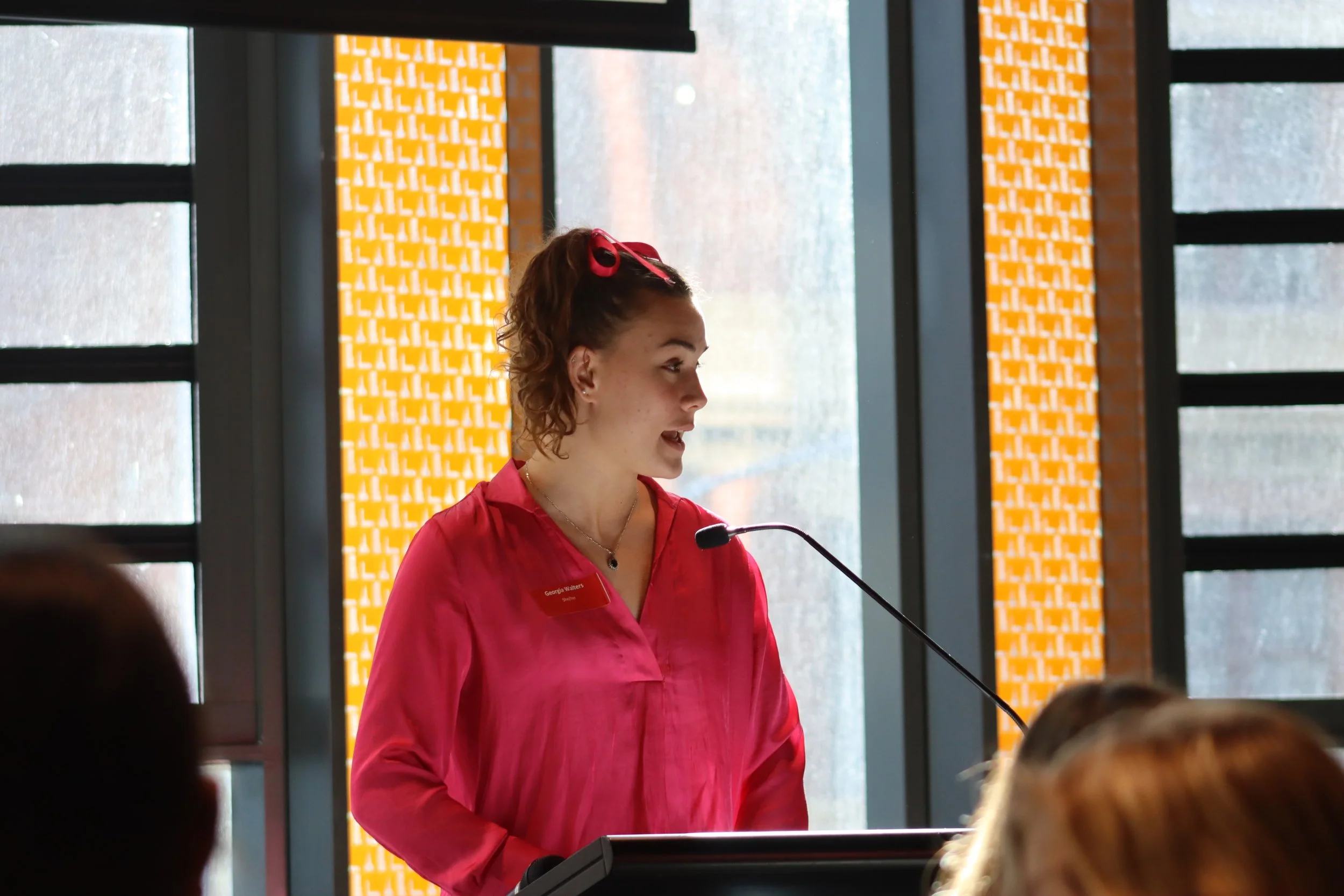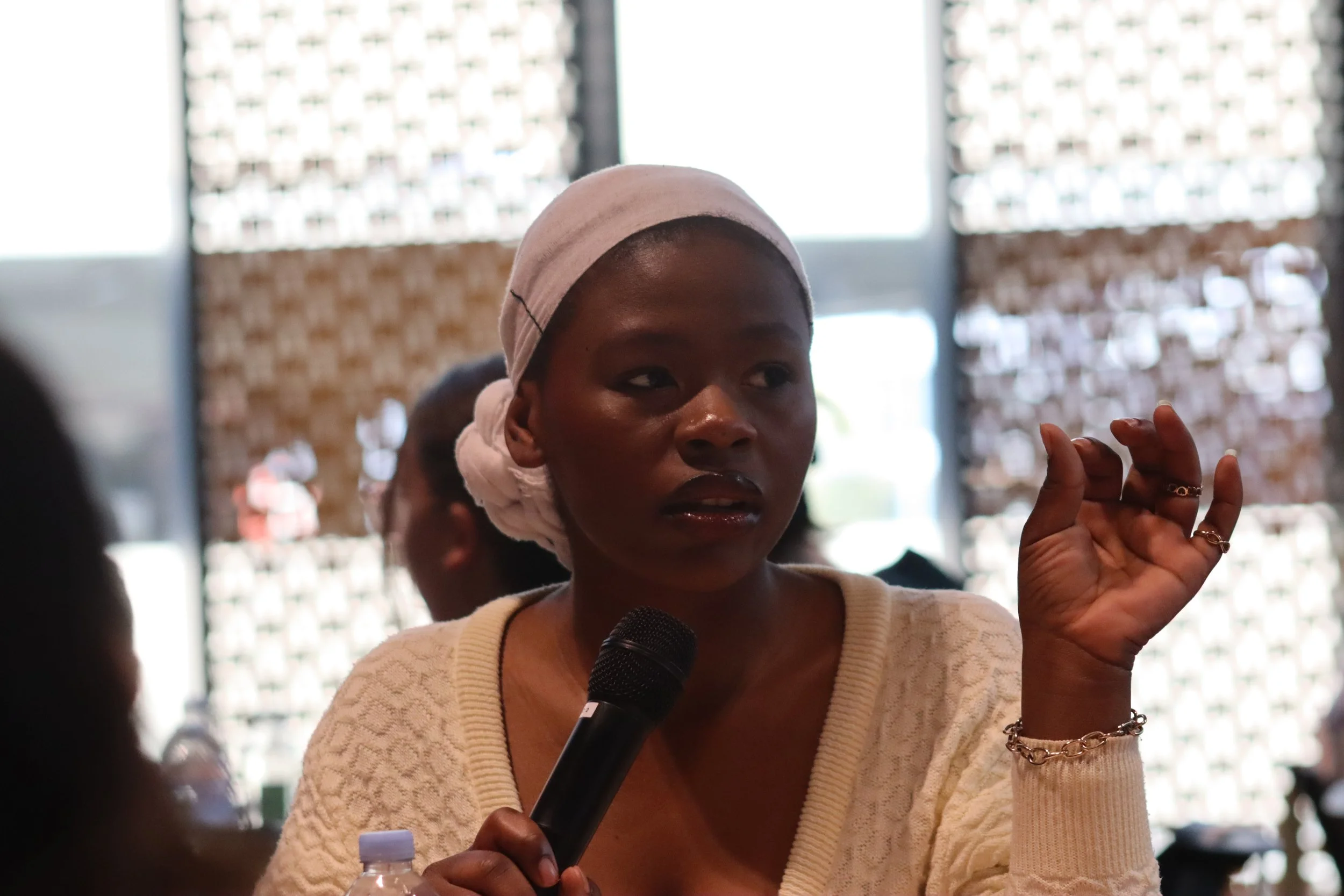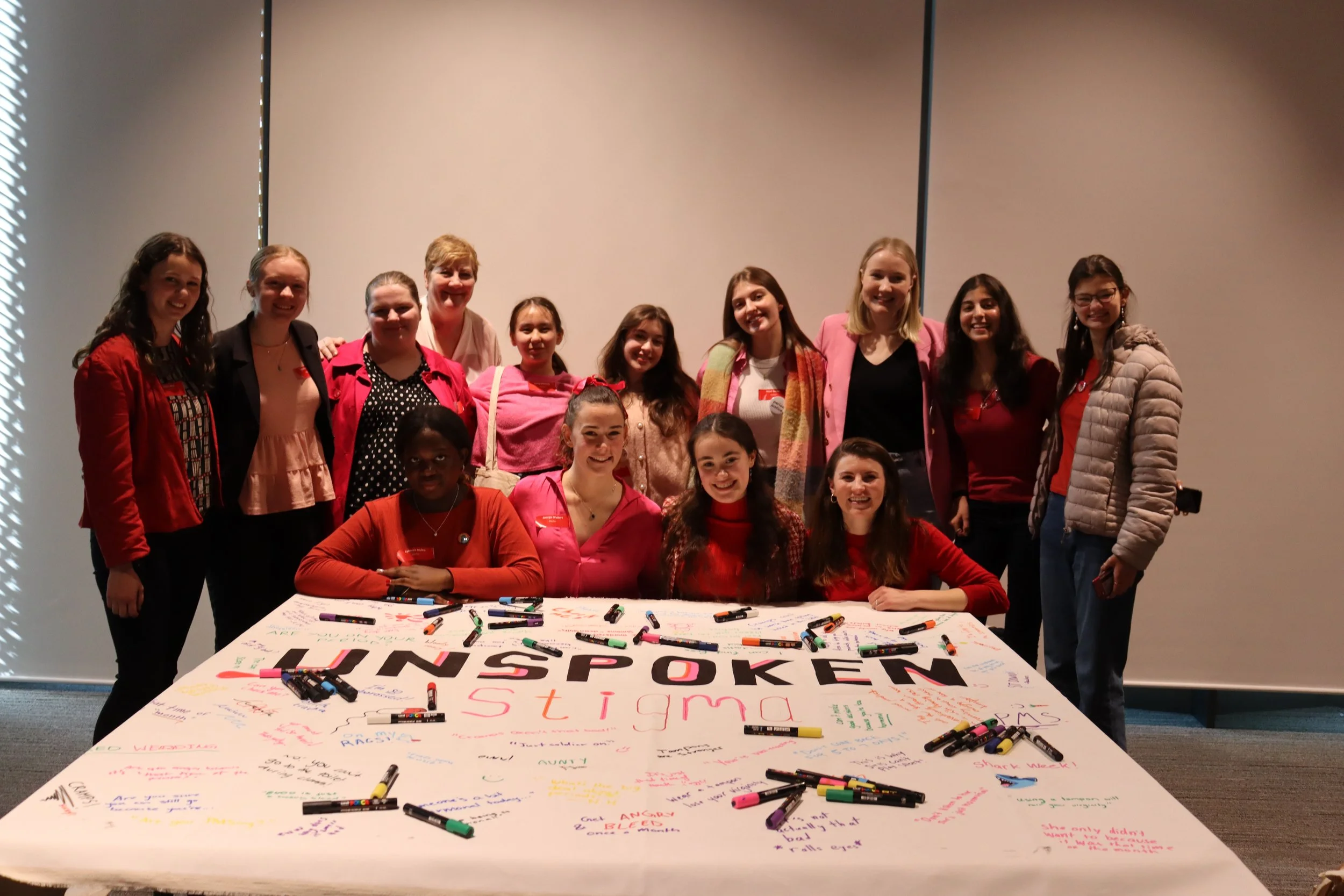Reigniting Period Justice in South Australia: Youth Period Summit 2023
When is it going to bloody end? That’s the symbolic question posed by the Commissioner for Children and Young People Helen Connolly, at the second summit by Period Justice, to the audience. On 11 July at the U City second floor conference room, an audience of over 100 people amassed, all from a diverse pool of high schools, universities, and workplaces, to collaborate to create a period justice charter, that could be applicable in any of those environments. The event attracted multiple innovating South Australians in the field of period justice, including Eloise Hall (Managing Director TABOO), Libby Trainor Parker (Health Advocate & Performer), Dr Monique Mulholland (Senior Lecturer Flinders University), Kirsty Mead (Executive Director Pelvic Pain Foundation), Billy Greet (President Flinders University Student Association), and Gemma Burdon (Foodbank Ambassador).
From the first steps into the room, one immediately felt heart palpitations to the eager determination that dominated the room. This same sensation was made ever so special by the presence of those highly remarkable figures within the room. Finding your seat and table proved to be challenging, due to the bustle of young people, and volunteers, however this slight frustration immediately relinquished itself following a glance of the table. Gift bags, containing a wide variety of items from TABOO products to stickers, and a booklet on period justice, were among the many fun items that made the experience even further rewarding. Many of the colleagues I entered the event with found the event to pass a colloquially called ‘Vibe Test,’ (play on words of the pub test) and were frequently thanking staff for the level of detail present.
Of course, gawking at tables could not last forever. The event was opened by Connolly who delivered a brief history of what lead to the creation of the period justice movement. Her 2019 Report Leave No One Behind (itself a remarkable read) identified lack of access to period products as a prevalent issue (74% of school principals), so much so it garnered a spin off in 2021 aptly titled Menstruation Matters. This report (one of the few resources into this large issue), identified that 1 in 4 young people who menstruate often find themselves in positions where they cannot access crucial period products in time. A variety of issues were identified, most notably affordability, lack of education (especially cultural), and failure to teach personal responsibility as primary factors. The report is the most far reaching in the field currently in South Australia, surveying 2,985 children and young people.
Following Connolly’s opening, the audience was quickly introduced to a panel (including Connolly), of the six people listed prior. The panel enjoyed a remarkable chemistry with each other, often bouncing of each other’s points with ease. These conversations culminated to an overall theme, said best by the panel.
“Whenever there is toilet paper, there should be period products.”
The panel addressed the issue of continuing cultural stigma, especially in immigrant families, work, and school environment’s responsibilities.
“Overcoming the deficit model,” this bias that often results in young children being restricted from conversations, even when they have maturity.
Following the panel, who received ovation by the audience, we were presented guest speakers; these included Georgia Thomas (SRC President Adelaide University), Amanda Palmer and Donna Carley (Metropolitan Youth Health), Jade Harland and Tiff Rynsdale (Co-founders Period Exhibition). Thomas’s speech resonated largely with the audience, she found issue with Adelaide University spending student tuition money on plants, instead of on period products in bathrooms, and forced change, which resulted in those products being implemented, and ongoing maintenance of the plants from the maintenance budget.
The third session, led by Lauren Gillespie (SHINE SA), was incredibly informative, and fun for the audience. Gillespie gave an educational lecture on how periods will differ for people who menstruate and engaged in an active activity with the audience. Using cards on our table that said ‘yes,’ and ‘no,’ table groups would work together to understand if prompts regarding different misconceptions or niche facts were true. The activity was incredibly popular, and in the following morning tea, members of the audience rejoiced.
It was Libby Trainor Parker though, who proved to gain the strongest pulse from the audience. Parker combined both comedy with the niche elements of periods, and delivered an incredibly valuable, but also seriously informative talk about period management, and suffering from endometriosis. Prior to the event, Parker engaged Chat-GPT to write her speech, which generated the final caption, “When life gives you periods, make period aid!” Clearly showing the inner feminist bias in Chat-GPT.
Following the comedic set, the crucial point of the whole exercise finally occurred. Despite hours passing, the same determination that entered the room, maintained, and each table group was split based on environment to create their specific charter. Even from our table group’s (workplace), far distance from the others, we could see via the screens, where groups could apply their values, that everyone was rushing to provide their feedback.
The overwhelming opinion, which was summarised at the conclusion of the event, was that period justice was not going to be achieved through a single action alone. A consensus was reached that period management was an important component, aside from supplying the products in schools.
“You don’t have to put up with any aspect of your period cycle that is making your life more difficult for you.”
“We don’t have an overarching framework that lifts it beyond an individual experience to a population / nation experience. If more then 50% of the population are experiencing [period pain] then there should be a policy framework.”
Connolly ended on the note, that if we want to bloody end period poverty, and install some justice, we will require a state-wide Policy Framework that can be applicable in any environment and ensure gender equity.

